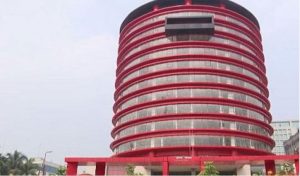3rd October, South and SouthWest Asian CSOs strategy meeting on SDGs
Review of Goals relevant for the sub-region; critical success factors and challenges and there were Presentation on SDG 4, SDG 8, SDG 11, SDG 13, SDG 13, followed by discussion. The CSOs Forum was attended by all the national level civil society actors from 8 South Asian countries including Iran and Afghanistan and also INGO representatives from India like WaterAid, ActionAid, Oxfam- India
CSOs tried to strategize how CSO voice can be reflected in the official forum and finalised all the draft intervention from civil society. Asia-Pacific Forum on Sustainable Development, 4th October (APFSD) was organised by UNESCAP, NITI Ayog, Indian Government and Research and Information System for Developing Countries (RIS).
The opening session mainly reflected on the current situation of the subregion in terms of assessment of progress on the implementation of the 2030 Agenda. Setting the context for the subsequent discussions and enhance awareness and understanding of the key challenges and opportunities for the implementation of the 2030 Agenda for Sustainable Development in the subregion. It was opened by
Dr Nagesh Kumar, Director & Head, UNESCAP South and South West Asia Office (UNESCAP-SSWA), Dr Sachin Chaturvedi, Director-General, Research and Information System for Developing Countries (RIS) and addressed by Mr Yuri Afanasiev, United Nations Resident Coordinator, India and H.E. Dr Ismail Rahimi, Dy. Minister of Economy, Afghanistan
The CSOs statement presented in the opening plenary represented the South and South West Asian civil society. It was really a powerful statement as I received congratulations and praise from the government stakeholders as well as from other academic and civil society actors. People also showed interest to learn more about ICCCAD. Mr Mohd. Mizanur Rahman, Dy Secretary, ERD, Ministry of Finance, Bangladesh gave the country presentation on SDGs
Then we had group work on all the SDGS (Goal 4, 8, 10, 13, 16) of HLPF 2019 where the scenario of climate change in South Asia and key challenging areas for regional cooperation were discussed. Later we presented the key recommendations from group work and how we can link it also with the Paris Agreement, NDCs and climate finance areas.
5th October, The days was mainly dedicated to discussion on the Subregional perspectives on the APFSD and HLPF theme “Empowering people and ensuring inclusiveness and equality” (2019). The day also focused on Means of implementation of SDGs in South Asia: Identifying key gaps in finance, technology, and capacity-building (SDG 17). The session discussed key challenges and opportunities for strengthening global partnerships and enhancing the means of implementation for achieving the SDGs in South Asia. Specific emphasis was placed on exploring potential mechanisms and innovations in mobilizing resources for the SDGs, including (i) public and private sources of finance, at both domestic and international levels; (ii) sharing of good practices and experiences in scaling up technology solutions; (iii) significance of South-South and triangular cooperation for building capacities and investment for SDG implementation; (iv) existing and emerging challenges in the international trade and financial system and policy actions needed to overcome them.
In the afternoon, there was a session on Regional cooperation for accelerating achievement towards the SDGs
This session discussed how regional/subregional cooperation and coordination can support and complement the effectiveness of national mechanisms for achieving the SDGs in South Asia, also highlighting the importance of inclusive and effective multi-stakeholder partnerships. It explores trends of regional, subregional and South-South and triangular cooperation evolving in support of the 2030 Agenda and discusses how regional commissions like UNESCAP and the United Nations Development System better support countries in South Asia in the achievement of SDGs which was chaired by Dr Nagesh Kumar, Director, UNESCAP-SSWA and the Keynote was presented by Dr Debapriya Bhattacharya, Distinguished Fellow, Centre for Policy Dialogue, Dhaka.
6th October, was the Policy Dialogue on Unlocking the Potential of Regional Cooperation in South Asia for achieving Sustainable Development Goals: The Way Forward.
The day mainly discussed Potential and challenges for regional economic cooperation in South Asia against the backdrop of emerging global trends Regional economic cooperation can support achievement of SDGs by facilitating job creation and poverty reduction through fostering regional value chains. Rising protectionist tendencies, emerging technological developments, mega-trade agreements and volatility in exchange rate markets are creating new challenges for the policymakers. This session took stock of emerging challenges faced by South Asian countries and explore solutions which enhanced regional economic cooperation can offer. Focus areas of the session were mainly:
• Review of the existing economic cooperation and trade arrangements at the bilateral, regional and subregional levels, their potential, limitations and challenges
• South Asia’s participation in the fourth industrial revolution, regional production networks, value-chains, ‘servicification’, etc.
• Opportunities for technological, investment and financial cooperation
• Assessment of preparedness of South Asia in extending the scope of regional cooperation and participation in the emerging mega-trade blocs
• Challenges related to LDC graduation
(Shaila Shahid, Senior Programme Coordinator-ICCCAD, International Centre for Climate Change and Development)




